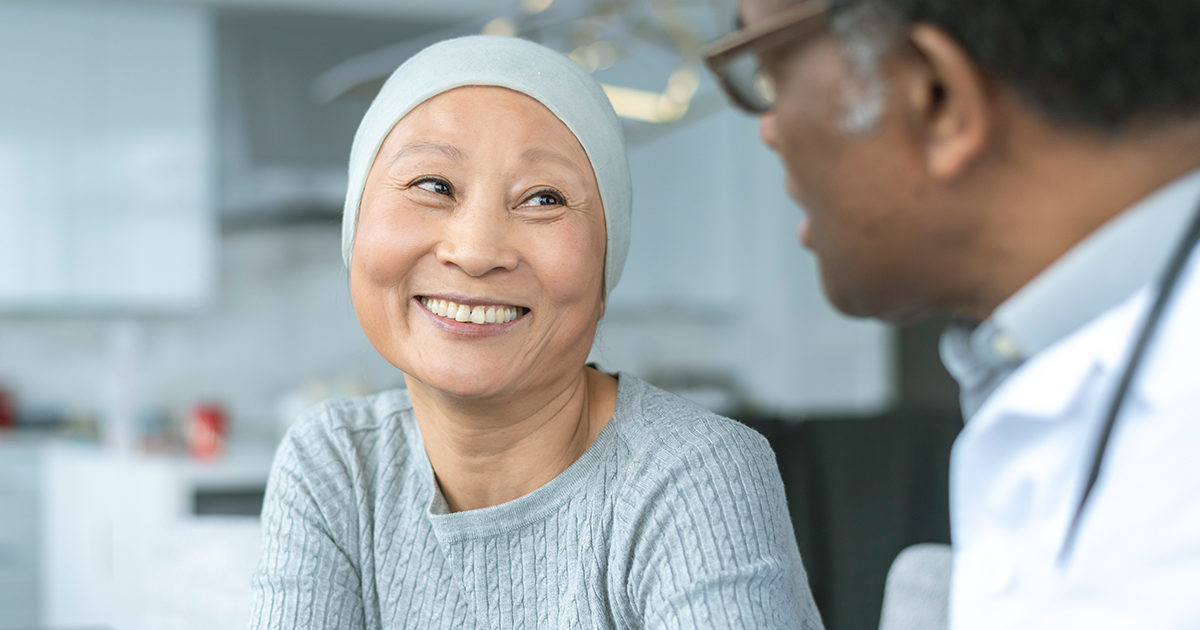About Gastric Cancer
The stomach is a j-shaped, sac-like organ that holds food and initiates the digestive process by secreting gastric juice before the food is emptied into the first part of the small intestine. Gastric, or stomach, cancers tend to develop slowly over many years. Before a true cancer develops, pre-cancerous changes often occur in the inner lining (mucosa) of the stomach. These early changes rarely cause symptoms and therefore often go undetected.
The stomach has five parts and depending on which section the cancer begins in, the symptoms, treatment options, and outcomes may be different. While cases of gastric cancer have decreased since the 1930s in the United States, gastric cancer is still one of the leading causes of cancer-related deaths in the world.
Types of Gastric Cancer
Gastric cancer is classified according to the type of cells that are involved.
Types of gastric cancer include:
- Adenocarcinomas: Cancers originating in cells that form the innermost lining of the stomach called the mucosa which account for 90-95% of gastric cancers
- Lymphomas: Cancers of the immune system tissue that are sometimes found in the wall of the stomach
- Gastrointestinal stromal tumors (GISTs): Rare tumors that develop in very early forms of cells in the wall of the stomach called interstitial cells of Cajal. These types of tumors can be found anywhere in the digestive tract but are most commonly found in the stomach
- Carcinoid tumors: Cancers that develop in the hormone-making cells of the stomach
- Rarer gastric cancers include squamous cell carcinoma, small cell carcinoma, and leiomyosarcoma.
Symptoms of Gastric Cancer
Your symptoms can vary based on which tissues are affected by the gastric cancer.
Symptoms of gastric cancer may include:
- Ascites (buildup of fluid in the abdomen)
- Blood in the stool
- Feeling bloated after eating
- Heartburn
- Indigestion and stomach discomfort
- Loss of appetite
- Mild nausea
- Stomach pain
- Trouble swallowing
- Unintended weight loss
- Vomiting
Risk Factors for Gastric Cancer
Certain people are at greater risk of developing gastric cancer.
Risk factors for gastric cancer may include:
- Age: Gastric cancer can occur at any age but typically affects those over the age of 65.
- Comorbid conditions: The following medical conditions are associated with gastric cancer
- Helicobacter pylori (H. pylori) infection of the stomach
- Chronic gastritis (inflammation of the stomach
- Pernicious anemia
- Intestinal metaplasia, a condition in which the stomach lining is replaced with cells that line the intestine
- Gastric polyps
- Epstein-Barr virus
- Family history: A family history of gastric cancer is linked to condition onset, as are some familial syndromes (including adenomatous polyposis).
- Personal history: Smoking, a diet high in salted, smoked foods and low in fruits and vegetables, and a diet involving foods that have not been prepared or stored properly can increase your risk for gastric cancer.
- Sex: Men have been identified as having a higher risk of developing gastric cancer than women.
Treating Gastric Cancer at UT Health Austin
Treatment requires accurate diagnosis and a care plan tailored to the specific type of tumor, the tumor’s location, and the overall needs of the patient. The different behavior of different tumor types helps drive decisions about treatment, which may include combinations of surgery, radiation therapy, and chemotherapy.
Care Team Approach
At UT Health Austin, we take a multidisciplinary approach to your care. This means you will benefit from the expertise of multiple specialists across a variety of disciplines. Your care team will include surgical oncologists, physical therapists, dietitians, social workers, and more who work together to help you get back to the things in your life that matter most to you.
We also collaborate with our colleagues at the Dell Medical School and The University of Texas at Austin to utilize the latest research, diagnostic, and treatment techniques, allowing us to identify and utilize new therapies to improve cancer treatment. We are committed to communicating and coordinating your care with your other healthcare providers to ensure that we are providing you with comprehensive, whole-person care.
Learn More About Your Care Team

Surgical Oncology
Health Transformation Building, 8th Floor
1601 Trinity Street, Bldg. A, Austin, TX 78712
1-833-UT-CARES (1-833-882-2737)
Get Directions